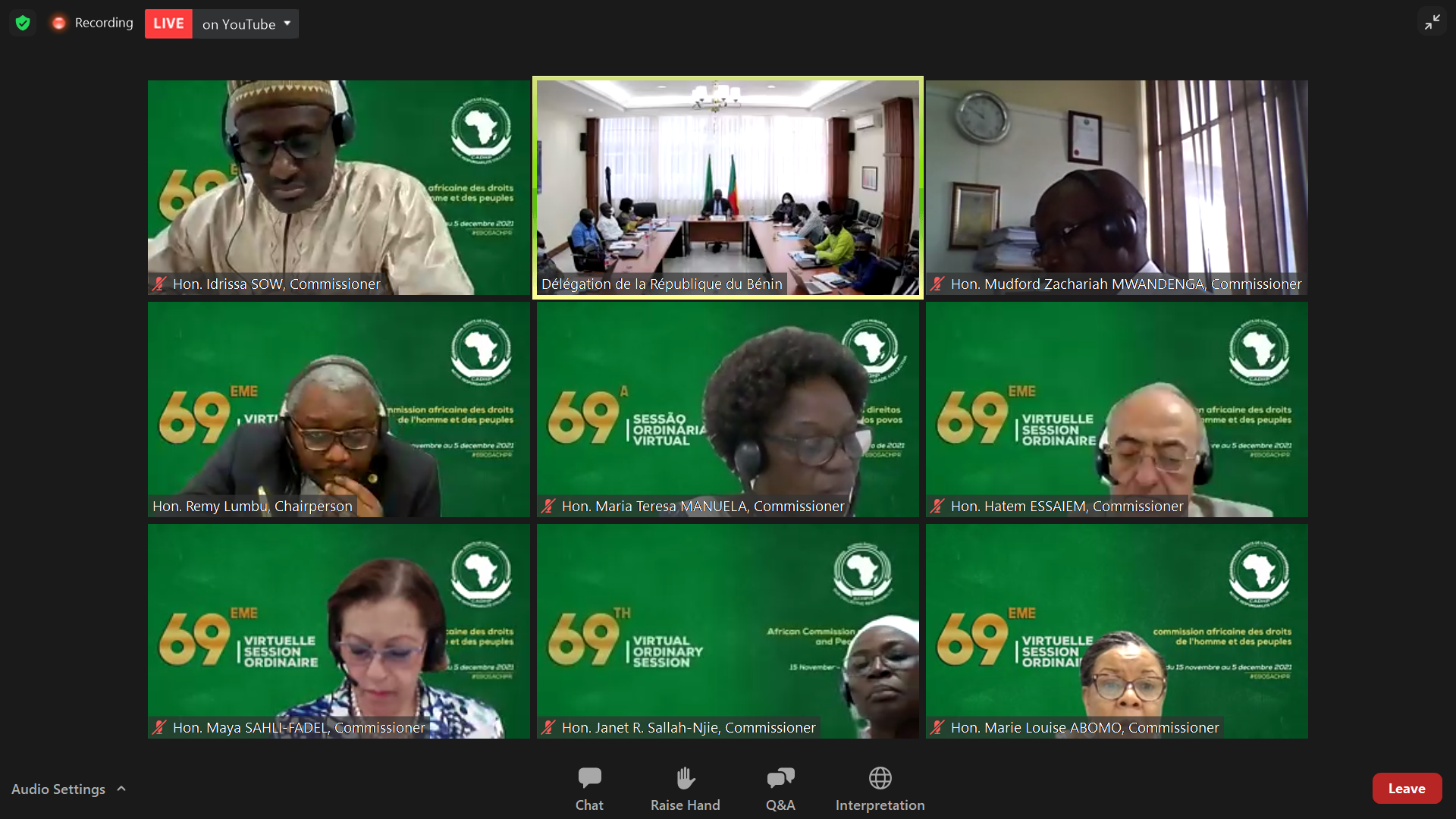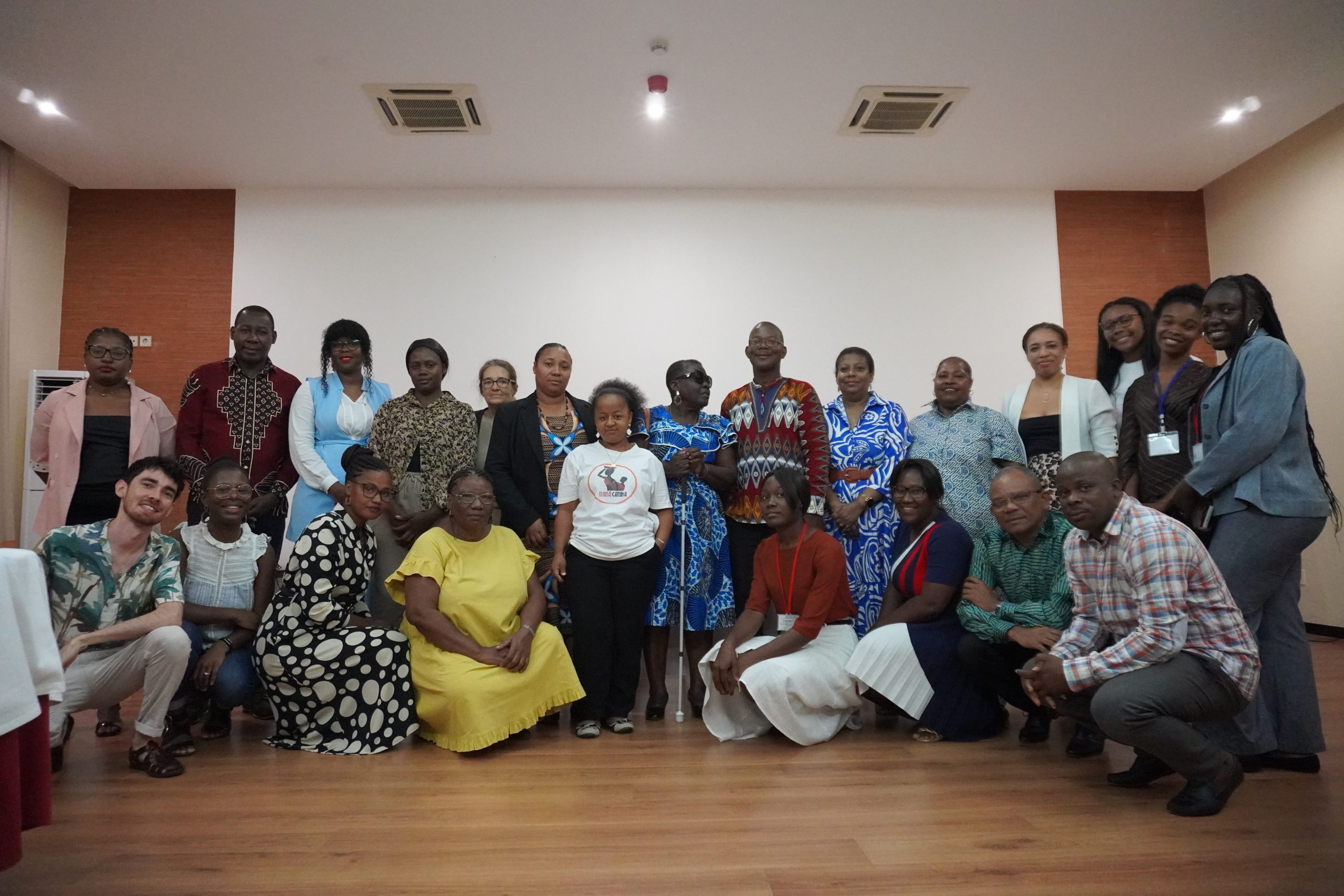Ahead of the 69th ordinary session of the African Commission on Human and Peoples’ Rights (the Commission), ISHR submitted a shadow report for the review of Benin.
On 19 and 20 November 2021, pursuant to article 62 of the African Charter, the Commission reviewed the 6th to 10th combined reports of Benin on the legislative or other measures taken, with a view to giving effect to the rights and freedoms recognised and guaranteed by the African Charter. The report covering the period 2009-2018 was submitted to the ACHPR in August 2020.
ISHR’s briefing paper called on Benin to:
- Remove from its legislation provisions that create a hostile environment for the work of human rights defenders.
- Combat impunity by ensuring prompt, thorough and transparent investigations into all violations committed against defenders, the prosecution of perpetrators and access to effective remedies for victims.
- Guarantee access to the internet to the Beninese population at all times in order to ensure respect of freedom of expression and put an end to the programmed censorship aimed at muzzling defenders.
During the presentation of the report of Benin, the Secretary of the Minister of Justice informed the Commission of some of the steps taken by the government to better protect the rights of its citizens.
Among other things, a law against gender-based offences and violence against women was adopted on 21 October 2021, a campaign on gender-based violence is ongoing, and the National Institute on Women has benefitted from numerous capacity building opportunities to ensure the rights of women are suitably protected. The delegation also shared that the National Commission on Human Rights is now fully functional, though for now, the budget allocated by the government remains insufficient for the institution to function to the best of its abilities. The National Commission also submitted its application for affiliated status to the African Commission in April 2021 and received a positive answer on 2 November 2021.
Benin is currently in the process of adopting a new law on the conditions of exercise of associations and a law on the promotion and protection of defenders. However, Benin recognises that the situation remains concerning regarding violence against women and girls, particularly with regard to genital mutilation, despite a heavy legal arsenal. Inequalities between men and women in access to resources, justice and basic social services are still persistent. They call on all relevant stakeholders, including the Commission, to help Benin in insuring the enjoyment of human rights in the country.
In his intervention, the Chair of the Commission and Special Rapporteur on human rights defenders, Remy Ngoy Lumbu, asked the delegation several questions on the steps taken by the country to ensure a safe and enabling environment for defenders in the country. He asked them to clarify whether freedom of association is guaranteed in the country’s constitution and what is the wider legal framework protecting this right in the country, encouraging Benin to draw on the guidelines on freedom of association and assembly in Africa adopted by the Commission and to ensure its laws comply with these. He also enquired about the extent to which human rights organisations are involved in the process of the law on associations and defenders, whether there are any restrictions on receiving foreign funding by civil society organisations, and which regime, notification or authorisation, applies to peaceful demonstrations. Finally, he asked what measures are being taken by the government to ensure defenders can carry out their activities safely, including tackling violations committed by public and private actors.
To conclude, the delegation of Benin emphasised that both the laws on associations and defenders are currently benefiting from the consultation and input of civil society and that they will inform the Commission in writing of the progress made in that sense.




